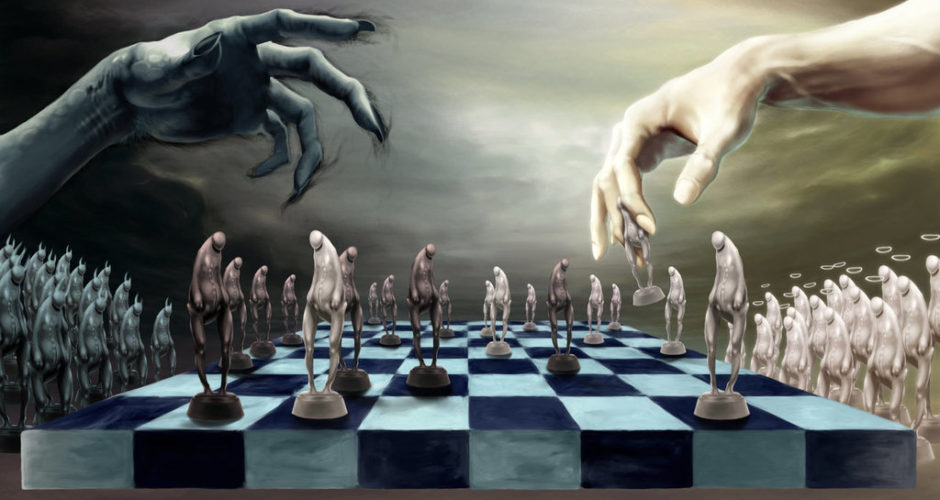Whether they admit it or not, lack of respect for other religions, particularly indigenous polytheisms, is a core tenet of monotheism (both Islam and Christianity).(1) One need only look at how both of these religions spread and gained power: by colonizing and destroying indigenous religions across the globe and by using terror and sometimes torture to force conversion.
This hasn’t really stopped. What is missionary activity after all except organized, ideological violence? What is the purpose of Daesh destroying ancient temples save to erase even the knowledge that once the world, not just individual cultures, not just isolated tribes but the entire world was polytheist? Monotheism has, from its inception, embraced terrorism and violence. Nothing has changed.
With Daesh, we see exactly the same methods that were used hundreds of years ago by Islam and Christianity alike; but here in the West, this violence has taken on different forms today.
On the one hand, we have individual acts of violence which are sometimes directly aimed at religious difference, but also taking the form of bigotry which is inspired by tenets of Christianity without being religious per se (homophobic and misogynist violence, e.g.).
On the other hand, we have the sublimated intellectual violence of erasure, which includes the misappropriation of works from non-Western civilizations in order to show that monotheism is “perennial” or “natural”. We see this with the tendency to elide polytheism out of indigenous religions, for example, the tendency by some academics to portray indigenous religions from Africa and the Americas as primordially monotheistic.
It was no surprise to me, therefore, to read over the past month or so, of numerous attacks on Hindu and other polytheistic temples. I can’t speak to Islam, but Christians have been desecrating other peoples’ sacred spaces from time immemorial.(2) And while many of these attacks may seem minor (there was, to my knowledge, no loss of life in any of the examples I give below), I do not think that they are in fact so. They represent a trend, an attitude, an ideology that would leave no room for our Gods or our ways. Here is a brief list of some of the recent troubles:
A Christian fundamentalist damaged eight sacred statues in a temple.
A Muslim man kicks over a Shivalinga.
A gunman robs a California Hindu Temple.
Police officers – Christian of course—desecrate a temple.
About the same time I came across this study discussing discrimination faced by Hindu students in American schools () and this Change.org petition to ban Christian missionaries from India something I think every country should consider doing.
Finally, last month a holy statue from a grove sacred to Slavic Paganism in the Ukraine was cut down by Christians. () This is not the first time this has happened. I predict as we more loudly and fiercely challenge monotheistic exceptionalism and privilege and the more visibly our traditions are restored, that we’ll be seeing more and more of this sort of thing.(3)
All of this starts with an ideological imperative to convert other religions at all costs. This is one of the reasons that it’s so important to resist anything that waters down our polytheisms. This includes our language. Language both shapes and reflects the lens through which we engage with our world. It’s crucial, therefore, to beware of language that normalizes monotheism.
Every time we say ‘God” when we mean “Gods” simply to make a monotheist feel comfortable, we betray our traditions and our ancestors. Every time we allow the polytheistic aspects of our traditions to be elided, whether it be to build bridges or keep the peace, we contribute to their erasure.
It is important to be vocal about our polytheisms, and to protect them and that may at times mean challenging accepted assumptions about the good of globalization in our world.(4) Sometimes what we must sacrifice to fit in is too great. We should be loud and proud about our polytheism.
Too often “religious tolerance” means that polytheists are expected to be silent when faced with attacks on their own traditions. Instead, let us defend our traditions fiercely and give no quarter not with our words and not with our deeds when those traditions are threatened.
Now I’ll be the first to point out that there are many monotheists both Christian and Muslim who would not dream of desecrating someone else’s sacred sites. The problem isn’t actually Christianity or Islam, the problem is the monotheism.
The problem is a worldview that demands a complete denial of our Gods and our ways. Venerate whatever God you want, but understand that your God is not the only one and we will fight to preserve our holy spaces.
By Galina Krasskova
Notes:
- I do not include Judaism here because, while it is the origin of Abrahamic monotheism, it still largely conducts itself much like a polytheistic faith, inasmuch as it is an ethnos rather than a proselytizing “Catholic” or universal faith.
- As I write this, I’ve just read an eighth century account of Bishop Lambert, a contemporary of St. Boniface. The account notes how he prided himself on having destroyed numerous temples and sacred statues. In the same century we have Frisian groves and sacred springs being destroyed by devout Christians, and at the behest of Gregory the Great, Christian holy places were often built atop Pagan shrines. When I read an account of Daesh destroying a temple of Nabu or Bel or Ba’al, I see precisely the same tactics of destruction and terror being employed. Nothing changes.
- I haven’t included examples of religiously motivated violence where life was lost, like the horrific attack in Orlando, FL recently. I don’t feel right about using people’s pain to make a point, not even what I consider an incredibly important point about the ongoing danger of monotheism. Suffice it to say, these examples too exist.
- There is a very interesting article here about the connection between the spread of monotheism and the spread of mono-culture: Western Monoculture and Hindu Pluralism
Galina Krasskova is a polytheist and academic. She is author of numerous books and blogs regularly at Http://krasskova.wordpress.com. She is the editor-in-chief of Walking the Worlds journal






























